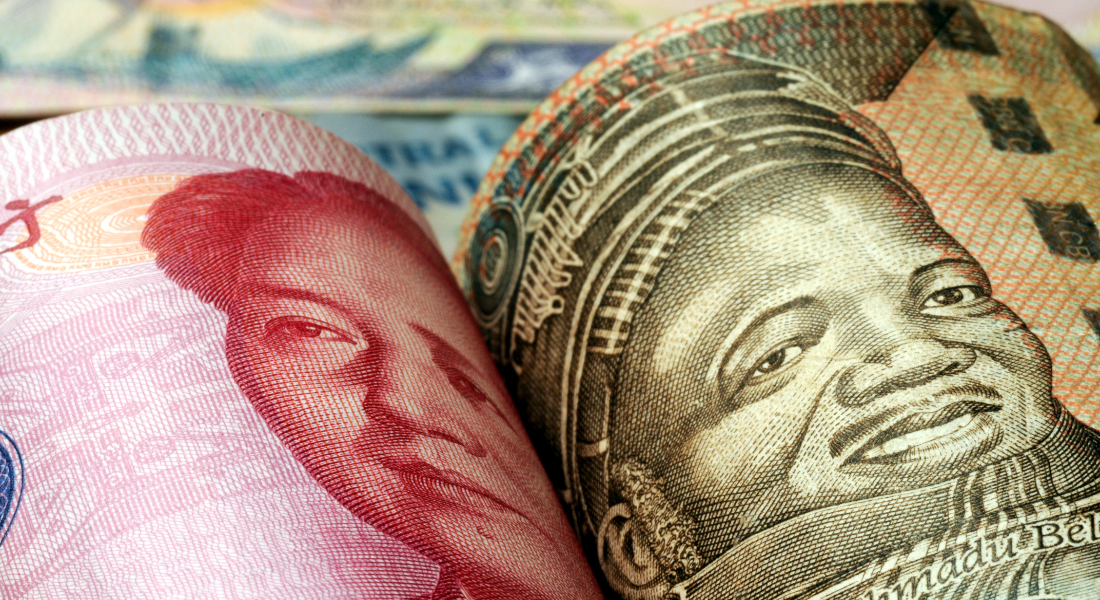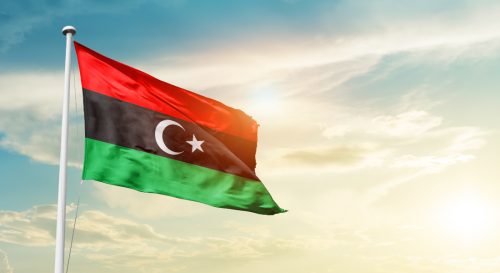
The Impact of Chinese Private Investment on Trademark Rights in Africa
The commercial relationships between China and the African continent began as early as the 2nd century BC, having expanded in the 7th century following the development of maritime routes. Trade between China and Africa has expanded since then and China became, in the 21st century, Africa’s first economic partner.
The exchanges between the two regions concern trade, investment, and finance and it is widely acknowledged that China is a major contributor to the economic and social development of the African continent.
The subject matter of this article is how these close relations between the two regions are reflected in Intellectual Property Rights, particularly trademarks, and in brands' behavior.
This analysis is geographically limited to OAPI (African Intellectual Property Organization which includes 17 members), ARIPO (African Regional Intellectual Property Organization, which has 12 members as far as trademarks are concerned), Nigeria, South Africa, Zambia and, partially, The Democratic Republic of Congo. The choice of OAPI and ARIPO is due to the number of countries it covers. Nigeria, South Africa, Zambia, and The Democratic Republic of Congo were selected because they are among the main African destination countries for Chinese investment, according to China’s Ministry of Commerce Transaction-level ODI Data. This analysis is also chronologically limited to the last decades because the 2009 is considered the year in which China emerged as Africa’s largest trading partner.
Economic context
The Forum on China–Africa Cooperation (FOCAC), created in 2000, is the most obvious proof of the proximity between China and Africa. This Forum has been held eight times since its creation, with the most recent summit occurring in Dakar (Senegal) on the 29th and 30th of November 2021.
Known for being a means par excellence for strategic collaboration between governments, it is remarkable to notice that FOCAC has evolved, in the last decade, towards a more private forum where investors and finance have begun to dominate the meeting.
Chinese Foreign Direct Investment (FDI) in Africa has risen from $74.8 million in 2003 to $4.2 billion in 2020, and part of the investment is of private origin. It is estimated that more than 10,000 Chinese companies are active in Africa and more than 70% are private companies, which is considerable. Further, the fact that the Chinese companies operate in the continent in sectors that are generally ignored by investors from other parts of the globe, is also worth noting.
In fact, the Chinese companies are much more fearless in operating in unstable contexts, with poor property rights protection, including intellectual property rights, in part because, even though in unstable business environments the investment is risky, the expected return could generally be very high. Thus, it is not surprising that the Democratic Republic of Congo is 5th in the Top 20 African destination countries, the Top 3 being, by order of importance, Nigeria, South Africa and Zambia, following the referred China’s Ministry of Commerce Transaction-level ODI Data.
The African continent is in continuous development and, therefore, it offers new business opportunities. But while most companies are afraid to invest in Africa, Chinese companies and Chinese brands saw the difficulty as a window of opportunity and filled African markets with their goods. The investment of Chinese companies specializing in new technologies is a good example of this.
The new technologies trademarks are the most protected trademarks by Chinese companies in Africa
When analyzing the available data regarding the trademarks registered by Chinese companies in OAPI and ARIPO, we notice that class 9, related to new technology, and class 12, related to vehicles, are the most frequent classes associated with trademarks owned by the Chinese. The number of trademarks in class 9 is higher than in class 12, thus, we deduce that the largest portion of the Chinese investment in the 29 country members of OAPI and ARIPO concerns technologies.
Similarly, if we take the Top 3 destination countries as study cases, the results are as follows.
In Nigeria, class 12 is the most frequent registered class, and the top products are vehicles, airplanes and locomotives. In South Africa, class 9, related to mobile phones, computers and computer hardware, software, and battery chargers, is the main class and accounts for 21,1% of the Chinese trademarks. In Zambia, it is also class 9 that stands at the first position. So, except for Nigeria, where national high-tech companies flourish, the Chinese trademarks in the Top 3 countries are essentially connected to technologies.
The success of the Chinese Transsion Holdings' brands is a perfect illustration of this.
Transsion Holdings is a manufacturer of mobile phones operating in Africa, the Middle East, Southeast Asia, South Asia, and Latin America. The company entered the African market in 2008 and gained, progressively, a prominent position in the market, becoming the largest smartphone manufacturer by sales in Africa in 2017.
Its best-known brands are TECNO, itel and Infinix, registered in the following countries among the selected countries used in this analysis. Trademark TECNO, and its various versions, are registered in OAPI, Swaziland, Lesotho, Malawi, South Africa, Nigeria, Zambia, and Uganda; trademark Infinix is registered in OAPI, South Africa, Uganda, Lesotho, Namibia, São Tomé and Príncipe and Zambia; and trademark itel is registered in OAPI, South Africa, Zambia and Malawi. This data clearly shows that Transsion protects its trademarks in very diversified African countries and, thus, invests successfully and considerably in the continent.
The success of TECNO, itel and Infinix brands is explained by two main factors. The first, and the most obvious, is the price of the goods, which may be much lower than the concurrent’ ones. The second, less obvious but most fundamental is that, unlike Samsung and Apple devices, Transsion’s products take into consideration the particularities of the African market. For instance, Transsion’s phones have a long battery life to suit the low electrification rates and blackouts in Africa. They include support for multiple African languages and have camera exposures calibrated to darker skin.
Attracting consumers is primordial and brands play an important role in it. The fact that Transsion adapts its products to African consumers builds, naturally, a positive image and reputation, and creates a relationship of trust. The trust provides the basis for a loyal clientele and develops an emotional attachment to the brand. In sum, Transsion’s brands give us a very good example of how new technology brands must act to conquer any market.
Although the success Chinese brands concerning new technologies is significant in Africa, it is not the only example of success for Chinese brands.
Trademarks of Chinese companies are registered in classes related to various sectors of the African continent’s economy
The major Chinese companies in the chosen geographical area are, in order of importance:
-
BYD, a publicly-listed Chinese conglomerate manufacturing company focused on automobiles, battery-powered bicycles, forklifts, solar panels and rechargeable batteries, goods of class 11;
-
HUAWEI, the famous multinational technology corporation;
-
GREE, the world's largest residential air-conditioner manufacturer, which products are in class 11;
-
Yili, Asia's largest dairy company, with products primarily related to class 29; and
-
JOMOO, an unavoidable kitchen and bathroom ware manufacturer that protects its trademarks in African countries mainly in classes 11 and 20.
This information suggests the following:
First, the number of trademarks registered in classes related to construction and energy, owned by the Chinese, has notably decreased when compared with the total Chinese-owned trademarks. It shows that Chinese investment has evolved to other economic sectors.
Second, as already discussed, Chinese firms consider the new technologies as a significant business opportunity sector in Africa.
Third, the Chinese investment is diverse. Not only the trademarks owned by the above companies are related to, at least, 4 different classes, but data issued from professional platforms shows that Chinese firms’ own trademarks for every class of the Nice classification in Africa.
Fourth, as a natural consequence, thanks to the Chinese investment, African consumers have access to a great variety of products and services that, otherwise, would be much more difficult to obtain.
The close partnership between China and the African countries has, indisputably, brought benefits to each party. Chinese investors could make great economic profits, and African countries could sustain their development supported by Chinese investment. Such a profitable partnership is not coming to an end, especially when we bear in mind that Africa intends to become the world’s manufacturing hub by 2063. Indeed, to do so, Africa needs renewable energy to power both homes and factories, and, since 2013 China has become an increasingly important partner in terms of investment in new power generating facilities across the continent.
This article was originally published in IPR Daily.
Currency Info
Final charges will be made in USD.
Currency conversion is for information purposes only and accuracy is not guaranteed. Overseas customers are encouraged to contact their bank or credit card provider for details on any additional fees these institutions may include for currency conversion.
- USD 312.389 NGN
Territory List
There are no results for your search.
- Africa
- Algeria
- Angola
- Benin
- Botswana
- Burkina Faso
- Burundi
- Cameroon
- Cape Verde
- Central African Republic
- Chad
- Comoros
- Congo (Republic)
- Côte d'Ivoire
- Democratic Republic of the Congo
- Djibouti
- Egypt
- Equatorial Guinea
- Eritrea
- Eswatini (Swaziland)
- Ethiopia
- Gabon
- Gambia
- Ghana
- Guinea
- Guinea-Bissau
- Kenya
- Lesotho
- Liberia
- Libya
- Madagascar
- Malawi
- Mali
- Mauritania
- Mauritius
- Mayotte
- Morocco
- Mozambique
- Namibia
- Niger
- Nigeria
- Réunion
- Rwanda
- Sao Tome and Principe
- Senegal
- Seychelles
- Sierra Leone
- Somalia
- South Africa
- South Sudan
- Sudan
- Tanzania (mainland)
- Togo
- Tunisia
- Uganda
- Western Sahara
- Zambia
- Zanzibar
- Zimbabwe
- Africa (OAPI)
- Africa (ARIPO)
- Other
- East Timor
- Macao
- Maldives
- Portugal
- European Patent (EPO)
- European Union Trademark (EUTM)
- International Trademark (Madrid System)
- Patent Cooperation Treaty (PCT)




